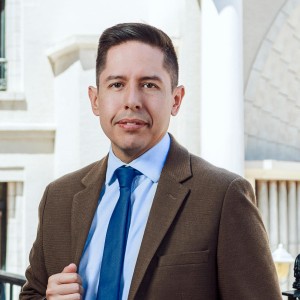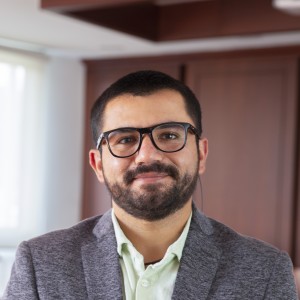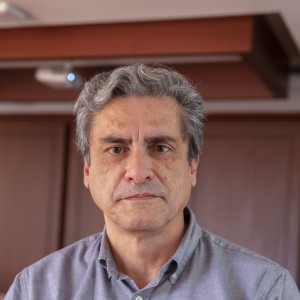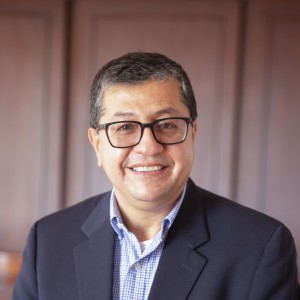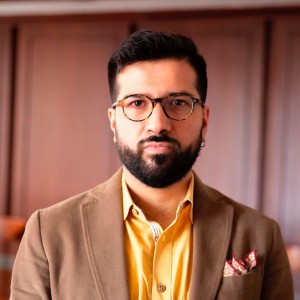Instituto de Investigaciones Jurídicas
The Institute of Legal Research of USFQ's College of Law (IIJ) was founded in 2017 under the direction of the College of Law. Through a multidisciplinary approach to Law, the IIJ seeks to be a benchmark for legal research in Ecuador. Currently, the IIJ focuses its efforts in the following areas: International Human Rights Law, Humanitarian Law, Comparative Law, Philosophy of Law, Legal Argumentation, Competition Law, and the different branches of Private Law.
The College of Law has several research projects in different areas of law, but over the years of legal research, we have built a special appreciation and focus in the field of Human Rights, International Public Law, and recently in Comparative Law and Philosophy of Law . Likewise, in the field of Private Law, we are strong in monographic works and graduate programs.
Our mission is the promotion of knowledge, research, education and its free dissemination, based on the infinite diversity of human experience, and directed towards the principles of freedom, beauty, goodness, and truth.
The vision of the College of Law and its Institute of Legal Research on research and teaching is to create an academic community in which knowledge is recognized as an end in itself and in all participants, and they participate in a relevant role in raising the quality of teaching and research. We want to contribute to academic freedom and independent scholarship in our University and also in Ecuadorian society. Consider that promoting legal research is crucial to create better conditions for teaching and also has a beneficial impact on public discourse on legal issues in society. We believe that it is part of the IIJ's mission to contribute to improving the prestige of knowledge and truth by disseminating publications of academic rigor. We believe that it is decisive for the sustainability of the quality of academic activities to create policies to promote the inclusion of students in academic activities. We are dedicated to the value of excellence in all academic activities. We believe that it is crucial to promote an environment that is open to innovation and collaboration with other universities at the national, regional, and international levels. Furthermore, we want to promote research projects with an interdisciplinary approach, and support a true and honest dialogue between different areas of science from different countries and continents to reach a more complete and authentic awareness.
Faculty
Farith Simon
Dean, College of Jurisprudence
(+593) 22971700 ext. 1792
fsimon@usfq.edu.ec
Johanna Fröhlich
Director, Institute of Legal Research
(+593) 22971700 ext. 2120
jfrohlich@usfq.edu.ec
Research
Lines of investigation:
- Updating the law in Ecuador
- Human Rights Law and international humanitarian law
- Private Law
- Philosophy of Law, Theory of Law and Public Law.
Among our previous projects, we must mention the project "Intertexts between the right to literature" that sought to be a specialized and diverse group of researchers as well as a platform for debate, theorization, and production of knowledge in a contemporary academy marked by the transnational and interdisciplinary dialogue.
Together with the project on "Defense of the right to free expression", this initiative managed to convene the first International Congress on "Freedom of expression: dialogues and reflections from law and literature", to publish an edited volume on this topic. In addition, this research group maintains a Blog on Freedom of Expression.
The CORREG (Constitutional Reasoning Research Group) research project studied and analyzed the constitutional reasoning of the Ecuadorian Constitutional Court between 2008-2017, to define the most salient characteristics and trends of Ecuadorian constitutional reasoning.
As the continuation of CORREG, in 2018, they created the CORE Latam project, which is a regional academic project whose objective is to identify and analyze the characteristics and trends of constitutional reasoning in Latin America.
In addition, currently, we have research projects on Inter-American doctrine, legal interpretation, Roman law, and its current events, or on humanitarian law.
Publications
Cahueñas, H. (2019). The road traveled to reach the Geneva Conventions and their common article 3. Global overview. https://www.uide.edu.ec/wp-content/uploads/pregrado/relaciones-internacionales/panorama-internacional/6.pdf
Cahueñas, H. (2019). Legal Disaster Risk Reduction Cooperation During Ecuador's Earthquake. Proceedings of the ASIL Annual Meeting, 113, 133-136. doi: 10.1017/amp.2019.175 https://www.cambridge.org/core/journals/proceedings-of-the-asil-annual-meeting/article/legal-disaster-risk-reduction-cooperation-during-ecuadors-earthquake/D1255EECA5AB9FE6A699252EBA03A6CB
Cahueñas, Hugo (2019). Disaster Risk Reduction Cooperation for the Protection of Persons in the Event of Disasters. In K. Samuel, M. Aronsson-Storrier, & K. Bookmiller (Eds.), The Cambridge Handbook of Disaster Risk Reduction and International Law (pp. 87-106). Cambridge: Cambridge University Press. https://doi.org/10.1017/9781108564540.007
Cahueñas, Hugo (2018) Without law nor technical body : the institutional framework for disaster risk management in the response to the 2016 earthquake in Ecuador. "Forum: Law Review. 30: 51-66. Http: // repository. uasb.edu.ec/handle/10644/6518
Cahueñas, Hugo (2018) Natural events turned into disaster: when the lack of risk reduction violates human rights. Memory Magazine of the Institute of Democracy and Human Rights of the Pontifical Catholic University of Peru (Idehpucp). http://idehpucp.pucp.edu.pe/revista-memoria/articulo/eventos-naturales-convertidos-en-desastre-cuando-la-falta-de-reduccion-de-riesgos-vulnera-los-derechos-humanos/ # .XCepcYVyFBt.linkedin
Cahueñas, Hugo (2016) Telecommunications in Disasters: the duty to facilitate and protect the use of the internet. In Internet Regulation and Digital Rights in Ecuador https://doi.org/10.18272/usfq.1.1
Carrión, Francisco; and, Cahueñas, Hugo (2013), Ecuador, the Americas and the World 2012). FLACSO - Ecuador, 2013. ISBN: 978-9978-67-409-3 (https://biblio.flacsoandes.edu.ec/libros/134315-opac)
Cahueñas, Hugo (2013), Development of international humanitarian law: Red Cross and the context in Peru. FLACSO - Ecuador, 2013. ISBN: 9789978674062 (https://www.flacso.org.ec/portal/publicaciones/ebook_display/id/4055)
Farith Simon, Introduction to the Study of Law. Quito, Cevallos, 2017.
Farith Simon, Nature as a subject of rights in the Ecuadorian Constitution: the construction of a category of interculturality. In: Nature as a subject of rights in democratic constitutionalism (Eds .: Claudia Storini et.al.), Editorial Universidad Libre, Bogotá, 2019, pp. 229-332.
Farith Simon, The rights of nature in the Ecuadorian Constitution of 2008: scope, foundations and relationship with human rights. ESMAT Magazine, Brazil, V. 11, No. 17, September 2019, pp. 231-270.
Farith Simon, Best interests of the child: right, principle and guarantee, published in Commentary on the Convention on the Rights of the Child, editor Yael Bendel, Editorial Jusbaries, Buenos Aires, 2019 (in press).
Luis Parraguez Ruiz, Legal Regime of Goods. Quito, Iuris Dictio Editions, 3rd edition, 2018.
Luis Parraguez Ruiz, The Simulated Legal Business. Quito, Cevallos, 2016.
Luis Parraguez Ruiz, Manual of Ecuadorian Civil Law. Ecuador: Editorial of the Technical Private University of Loja, 2006.
Juan Pablo Aguilar, The myth of the new constitutional paradigm. Quiot, Corporation for Studies and Publications, 2018.
Juan Pablo Aguilar, Neoconstitutionalism in Ecuador. A look at the naive jurist. Iuris Dictio, Year 13, Vol.15. (2013 January-June)
Juan Pablo Aguilar, Administrative Law and Transigibility. Ecuadorian Journal of Arbitration No.6. (2014)
Jaime Vintimilla (in co-edition with Milena Almeida Marino and Remigia Saldana Abad), Indigenous law, conflict and community justice in Kichwa communities in Ecuador. Community Justice Series in the Andes: Peru and Ecuador Vol.4. IDL Legal Defense Institute, Lima, 2017.
Jaime Vintimilla, The distribution contract: of the atypicality of the formalization. Iuris Dictio Year 17, Vol.15. (2016 February-July)
Pier Paolo Pigozzi, Inter-American Doctrine
Johanna Fröhlich - Pier Paolo Pigozzi: “Ecuador: The State of Liberal Democracy 2018” Global Review of Constitutional Law, ICONnect-Clough Center (2019)
Johanna Fröhlich, Participation and Referendum in the Refugee Crisis - The Hungarian Case on the European Refugee Quota (in English) in: Il diritto alla consultazione popolare nel XXI secolo (a cura by E. Ceccherini, LE Ríos Vega and I. Spigno) Editoriale Scientific (2019)
Johanna Fröhlich: „Law as Reason for Action” in: Mortimer Sellers - Stephan Kirste (eds.), Encyclopedia of the Philosophy of Law and Social Philosophy. Springer, The Netherlands. (on-line first 2018)
Johanna Fröhlich, (co-authored with András Jakab), The The Hungarian Constitutional Court ”in: András Jakab - Arthur Dyevre - Giulio Itzcoivch (eds.): Comparative Constitutional Reasoning, Cambridge University Press, 2017.
Mauricio Maldonado Munoz, Democracy from Bobbio. Quito, Cevallos, 2019.
Mauricio Maldonado Muñoz, Building the law (between cooperative and non-cooperative games). USFQ Law Review Vol. 6. No.1. (2019)
Mauricio Maldonado Muñoz, The fundamental rights. A conceptual study. ARA Editores, Lima, 2018.
Hugo Cahueñas Muñoz, Comparative Study of Disaster Law in Ecuador and in the United States: the disaster risk management system and the declaration of disaster. 2016.
Services (If there is an activity other than Research)
Alliances
Interamerican Academy of Human Rights
Country: Mexico.
Collaboration type: Academic.
News
Facebook: @USFQJurisprudencia
The International Congress on Freedom of Expression and Law and Literature Quito, June 2018.
First international meeting of the CORE Project, Project launch event, Santiago de Chile, July 2019.
How to measure the quality of legal reasoning? CORE Workshop, Quito, July 2019.
Research group intertexts between law and literature USFQ
The intertexts between law and literature research group seeks to be a specialized and diverse group of researchers, as well as a platform for debate, theorization and production of knowledge in a contemporary academy marked by transnational and interdisciplinary dialogue.
Constitutional Reasoning Research Group CORREG
In all constitutional cultures today, there are concerns about the lack of coherent and informed judicial decisions
CORE Latam Project
The CORE Latam Project is a regional academic project whose objective is to identify and analyze the characteristics and trends of constitutional reasoning in Latin America. By studying the jurisprudence of the constitutional courts and supreme courts of 16 jurisdictions in the region.

